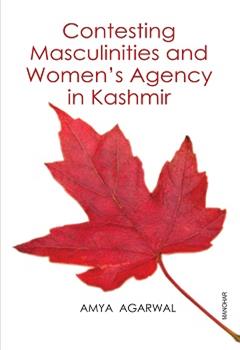Contesting Masculinities and Women's Agency in Kashmir
no information available
Through an ethnographic study conducted between 2013 and 2016 this book explores the politics of competing and sometimes overlapping masculinities represented by the state armed forces and the nonstate actors in the Kashmir valley. In addition the book broadens the understanding of women’s agency through its engagement with the construction performance and interplay of masculinities in the conflict. Combining existing elements of both feminist research and critical scholarship on men and masculinities the book highlights the significance of foregrounding the interplay of men’s identities in conflicts to understand agency in a meaningful way. Through the focus on the simultaneous play of multiple masculinities the book also questions the oversimplified and monolithic usage of masculinity being associated only with violence in conflicts. The empirical data in the book includes interviews and narratives of multiple stakeholders belonging to diverse vantage points in the Kashmir conflict. Some of these include activists widows wives of the disappeared exmilitants surrendered militants participants of the stonepelting movement mothers of sons killed in the conflict women representatives of the village Halqa Panchayats and army personnel. The book also draws from alternative material in the form of graffiti folk songs poetry on graves and slogans. Through anecdotal reminiscence the author reflects on the challenges of field research in Kashmir that served as an opportunity for selfcontemplation. About the Author Amya Agarwal is a senior researcher at the ArnoldBergstraesserInstitut at the University of Freiburg and teaching fellow at University College Freiburg Germany.
... Read more Read less










